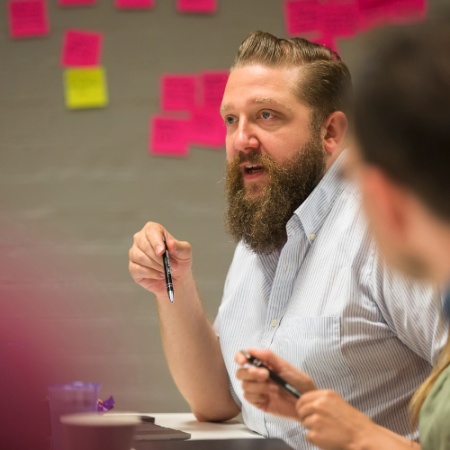Workplace diversity – particularly in the tech sector – has been hitting headlines more than usual this year after a now-infamous internal memo from (former) Google Software Engineer James Damore went viral this summer. As a reminder, Damore criticised Google’s ongoing diversity efforts and claimed gender inequality within tech was simply due to biological differences between men and women.
Some time afterwards Intel released its diversity and inclusion report, which revealed that white men still made up 68 per cent of employees and that progress towards the company’s 2020 diversity goal has slowed considerably. The two events served to highlight how far we are from where we should be in terms of diversity in hiring, both in the technology sector and beyond. So what can be done in the wider industry to tackle the issue? And what can entrepreneurs do to ensure they don’t make the same mistakes?
For me, it’s most important to consider inclusivity as a whole rather than just diversity. Ultimately, diversity will be achieved through greater inclusivity. While it is something that can grow within existing organisations, entrepreneurs are in a unique position to think about these questions from the very beginning and ensure they don’t end up in the position companies like Google and Intel are in now. When initially launching a business, founders should make sure that they are setting an inclusive environment that will foster diversity.
For employers it’s often easy to operate in a way that is exclusionary, even if only accidentally. For example, making every social event drinks in a bar until late in the evening means certain groups of people will not be able, or just not necessarily inclined to attend. Especially in the early days of a startup, entrepreneurs should be careful not to fall back on hiring people who are exactly like themselves – something that can feel natural and even sensible, but which logically leads to a lack of diversity straightaway.
It is also necessary to remember the many other intersections at play when we talk about diversity. Whilst we often consider it in terms of race and gender, dimensions such as age, sexuality, marital status, parental situation, mental and physical health are all facets against which we may unintentionally discriminate.
Since the early days, we have been conscious and careful at our organisation to ensure we’re being as inclusive as we can, weaving it into the company culture itself: we allow remote working and flexible work hours, which are advantageous for colleagues who have commitments such as caring for children or relatives. We aim to have a variety of social events that can appeal to different people, so that there’s as much opportunity to be included in low-key socialising as in evenings at a bar. As a founder, I try my best to model a healthy work/life balance and push the importance of mental health – such as by taking time out during the working day if things get overwhelming.
As we’ve seen from news stories such as the Google controversy, there are people who honestly believe that women and people of colour are genetically less capable of working in certain sectors – a belief grounded on exceptionally flawed science. Research has shown that teams with more gender and racial diversity exhibit better financial performance, a consequence that should be appealing to someone starting up a business and hoping for the best chance of success.
However, biases like these are deeply entrenched in the minds of many, and it’s important for us to challenge them where they surface. It is especially important for entrepreneurs to challenge them within themselves. Systemic bias pushes people from underrepresented groups to quit degrees, or leave an industry because they don’t believe they’re able to thrive.
Entrepreneurs have the opportunity right now to influence attitudes and set new standards for workplace diversity, ushering in a better era of inclusivity within startups, and hopefully, eventually, the wider industry.
Jon Topper is co-founder and CTO of UK tech company The Scale Factory, a DevOps consultancy that helps organisations design, build, operate and scale their infrastructure.






